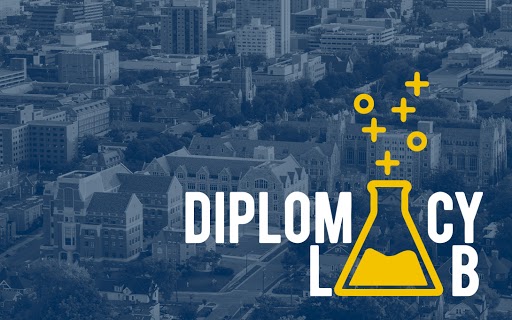
Gender-based violence (GBV) is a persistent problem all over the world. Some of the worst countries for GBV are located in Latin America. For example, Argentina recorded the third-highest number of femicides in 2018, a rate of 1.1 per 100,000 women. The isolation of the pandemic lockdowns seems to have exacerbated the problem, as U.S. News & World Reports called GBV in Latin America a “pandemic within a pandemic.”
At the behest of the Office of Policy Planning and Coordination, Western Hemisphere Affairs, at the U.S. State Department, a team of student researchers from the Ford School sought evidence of the ways in which the problem had gotten worse, and the actions that were being taken to combat it. They produced a 100+-page report and made a presentation of their findings to a group of State Department officials in May.
It is one of more than a dozen projects undertaken by Ford School students since U-M joined the Diplomacy Lab program in 2020. Projects have covered topics ranging from money laundering in the Caribbean to disinformation campaigns in Africa to illicit narcotics in China. Professor John Ciorciari and the Weiser Diplomacy Center coordinate U-M’s involvement as a partner university to the State Department.
This project’s first task was to establish what the GBV situation was before the pandemic, looking at six countries: Argentina, Bolivia, Brazil, Colombia, Ecuador, and Peru. The team was immediately frustrated to discover that data on femicide was hard to gather due to differences in reporting standards across the region.
The Ford School students -- Justine D’Souza (MPP/MSW ‘23), Michaela Minnis (BA ‘22), Katherine Randall (MPP ‘22), Celia Sawyerr (MPP ‘22), Marianna Smith (MPP ‘21), and Linh Tran-Phuong (MPP ‘22) -- noted that the key obstacles combating GBV during the pandemic were related to a suspension of services and stay-at-home orders that trap at-risk populations with their abusers. “It became difficult for some women to report abuse when they were sharing the same space as their abuser,” they reported.
Solutions fit into four main baskets: Community Intervention, Grassroots Social Movements, Increased Government Transparency and Capacity, and Diverse Resources, and the students gave examples of each type of intervention. Yet the effectiveness of any of them was “based on anecdotal evidence as there is little empirical research... Without statistical analysis on data, anecdotal evidence is the best descriptor of the lived realities of women in this region,“ the report warns.
They conclude with policy prescriptions, including:
- ensure that policies have a gender lens and are multi-sectoral and intersectional
- Incentivize diversity in service providers
- Engage host government stakeholders to better understand the policy landscape
- Implement programs that increase female labor force participation
“We hope these lessons learned provide the groundwork for important programs and protections to combat GBV after the pandemic is over.”